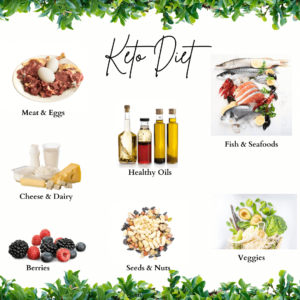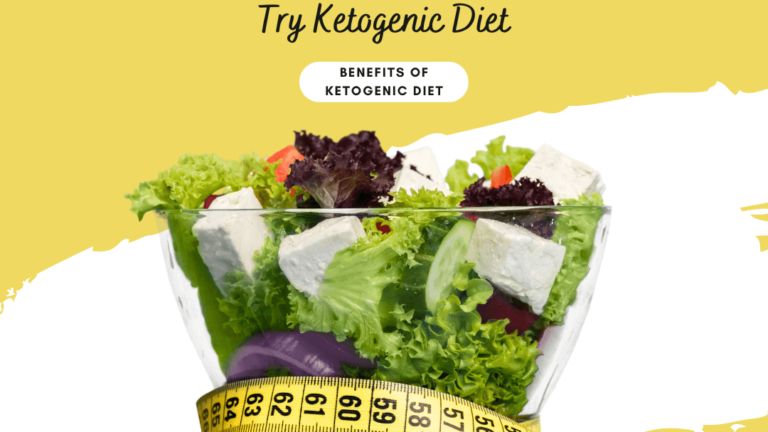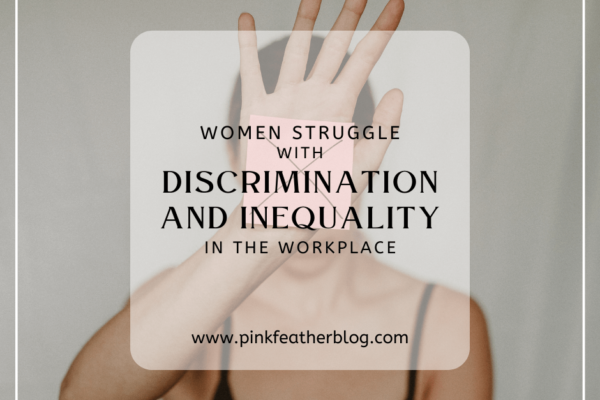Your ultimate beginner’s guide to the Ketogenic diet is here! Let’s understand what is Ketogenic diet? And how it impacts weight loss and overall health.
A ketogenic diet is also known as Low Crab High Fat (LCHF diet) or simply Keto Diet is one of the most effective diets for weight loss and other certain medical conditions without starving yourself from hunger.
How does it work? Well, when we cut out carbohydrates (Carbs) from our diet, our body is induced into a metabolic state known as Ketosis. Ketosis is a process when our body starts breaking down fat into molecules to be used as a source of energy. These molecules are known as Ketone, a compound that the liver creates from fat in the absence of insulin in the blood.
The Magic mantra of the Ketogenic diet is “starvation of carbohydrates” as it consists of high-fat, moderate-protein, and low-carb. The keto diet is designed to make the body produce ketosis rather than relying on carbs as the primary source of energy.
Let’s find out food that we can eat on Keto Diet?
Our body gets nutrients from three important keys: Fats, Proteins, and Carbohydrates. Since the Keto diet is high in fat which would account for 70%, moderation in protein will sum up to 25%, and very low in carbs which will be 5% in total intake of nutrients.
The idea is to focus on eating food with high-fat content and keeping your carbs limited. However, carbs aren’t just present in processed food but also present in some vegetables especially starchy veggies like potatoes, corn, and squash. Try adding red bell pepper, kale, and cauliflower as they are low in carbs.
Given below is the beginner’s guide to What to Eat and Which food to Avoid in your Keto Diet.
What to eat:
- Meat- Chicken, Turkey, Venison, Beef, Pork, eggs, and Lamb
- Seafood- Salmon, Sardines, Tuna, and Shrimp
- Green Leafy Veggies- spinach, kale, and Celery.
- Above-ground Veggies – broccoli, cauliflower, Tomatoes, Eggplant, Asparagus, Spinach, Green Beans, Cucumber, Zucchini, Bell peppers, and Brussels sprouts.
- High Fat Dairy- hard cheeses, high fat cream, butter, Greek yogurt, and cottage cheese
- Nuts and seeds- Macadamias, walnuts, sunflower seeds, Chia Seeds, Flaxseeds, and Sesame seeds.
- Fruits- raspberries, blackberries, Avocado
- Sweeteners – monk fruit, cocoa powder, dark chocolate, unsweetened coffee, and tea.
- Other fats – coconut oil, high-fat salad dressing, Olive Oil, Avocado Oil, and saturated fats.
What to avoid:
- Beans, peas, lentils, and peanuts
- Grains and Cereal like rice, pasta, and oatmeal
- Added sweetener and anything made with sugar
- Sugary beverages, including juice, soda, wine, beer, alcohol, and sweetened cocktails.
- Traditional snack foods like tortillas, bagels, pancakes, potato chips, pretzels, and crackers
- Most of the fruits
- Cakes, cookies, muffins, and other baked goods.
- Starchy vegetables including corn, potatoes, peas, and squash
Health Benefits of Ketogenic Diet:
The Keto diet is a low-carb diet that is highly recommended to lose weight efficiently. Low on carbs reduces the supply of glucose in your blood and liver creating a compound Ketone breakdown the fat to generate energy. A Keto diet offers sustainable weight loss by dividing the nutrients limited to 70% Fat, 25% protein, and 5% carbs as daily intake.
Another benefit of the Keto diet, it keeps overall metabolism in control and appetite reduced. Since the Keto diet restricts to a certain type of food involving high fat and lean proteins that will automatically keep blood pressure, cholesterol level, blood sugar level, and digestion in balance.
A keto diet is more effective to control blood sugar and insulin level, especially in type 2 diabetes. It helps to regulate blood pressure. The Keto diet was originally designed for children suffering from epilepsy-like seizure disorders. However, with more research, it was found that the Keto diet can be effective against brain issues like Parkinson’s and Alzheimer’s disease.
Consuming too many carbohydrates causes water retention in the body and thus bloating. However, the Keto diet doesn’t let you bloat. It will make you feel more energetic and with more impactful workout sessions. This low-carb diet also keeps the heart healthy by dropping the level of triglycerides that contribute to cardiovascular problems.
To conclude, to keep yourself safe, consult your dietician or nutritionist as you plan to adopt a Keto diet in your health journey. The Keto diet is not one diet plan that fit’s all, to make it work you need to ensure with your doctors or dietician that you can balance all vital nutrients. Initially, the Keto diet works great for weight loss and other concerns like improving heart health, regulating blood sugar levels, restoring insulin sensitivity, protecting brain functions, and potentially reducing seizures. A Keto diet in a long run is quite difficult and the risk of consuming too much fat for a longer period might affect the cholesterol level and other health conditions. It works best only for a short period and for those people who are diligent and committed. The Keto diet is not advisable for people suffering from serious health conditions in their pancreas, liver, thyroid, or gallbladder.





